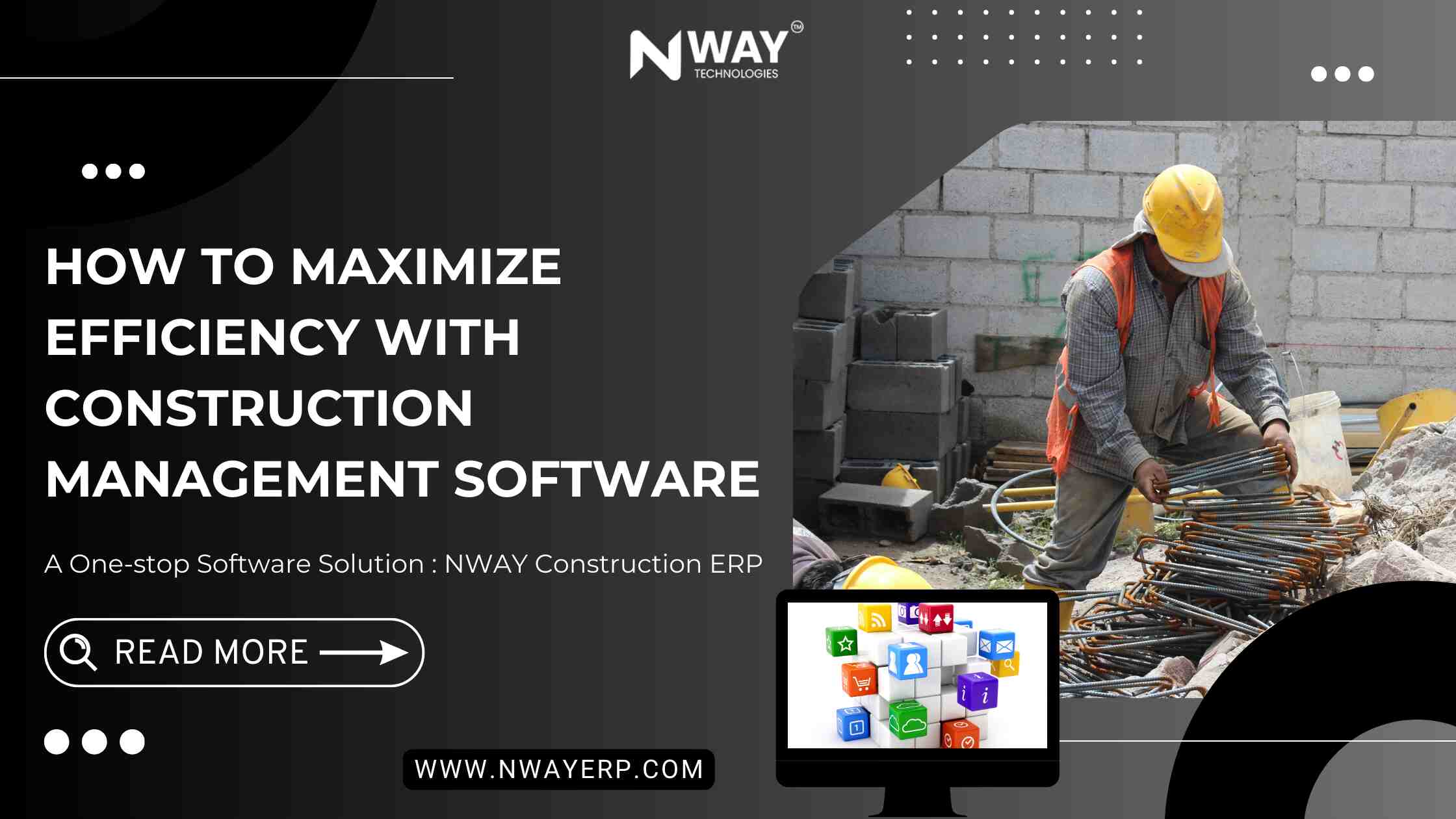Welcome to our blog! In today’s post, we will discuss how construction management software can maximize efficiency in your projects. Whether you are a project manager, contractor, or involved in any aspect of the construction industry, utilizing the right software tools can significantly improve your productivity and streamline your processes. We will explore the benefits of construction project management tools, software solutions, and ERP software designed for construction management.
Construction Project Management Tools
Effective construction project management is crucial for overseeing complex projects and ensuring they are completed on time and within budget. Traditionally, project managers relied on manual processes and spreadsheets to track project progress, costs, and resources. However, these methods are time-consuming, prone to errors, and lack the real-time visibility necessary for efficient project management.
Construction project management software provides a comprehensive solution to address these challenges. Let’s take a look at some key features and benefits of these tools:
- Project Planning and Scheduling: Construction project management software allows you to create detailed project plans, assign tasks, and set deadlines. It lets you visualize the project timeline, identify critical path activities, and allocate resources efficiently.
- Document Management: With construction software, you can centralize all project documents, drawings, and specifications, making them accessible to the entire project team. It eliminates the need for paper-based documentation and reduces the risk of miscommunication.
- Communication and Collaboration: Construction management software facilitates seamless communication between team members, subcontractors, and clients. Features such as instant messaging, file sharing, and activity feeds promote collaboration and ensure everyone is aligned.
- Cost Tracking and Budget Management: These tools track project costs in real-time, monitor budgets, and generate accurate financial reports. This helps you identify cost overruns, manage change orders, and make informed decisions to keep the project on track financially.
- Resource Management: Construction project management software enables you to efficiently manage labor, equipment, and materials. You can schedule resources, track their availability, and prevent resource conflicts.
- Risk and Issue Management: You can proactively identify and mitigate project risks and issues using construction management software. These tools provide a systematic approach to logging and tracking issues, assigning responsibilities, and monitoring their resolution.
Construction Software Solutions
In addition to construction project management tools, various specialized software solutions are available to address specific challenges within the construction industry. These solutions cater to different aspects of construction management, such as project estimation, quantity takeoff, cost estimation, and field reporting. Let’s explore some of the standard construction software solutions:
- Estimating Software: Estimating software helps construction professionals accurately estimate the costs of materials, labor, and equipment required for a project. It simplifies the estimation process, reduces errors, and improves the overall accuracy of cost estimates.
- Building Information Modeling (BIM) Software: BIM software enables construction teams to create a digital representation of a building or infrastructure project. It allows for collaborative design, clash detection, and accurate visualization, enhancing project stakeholders’ coordination.
- Project Accounting Software: Project accounting software is designed to track and manage the financial aspects of construction projects. It integrates with other construction management tools to provide a holistic view of project finances, including invoicing, payroll, and financial reporting.
- Field Management Software: Field management software streamlines the communication and coordination between the office and field teams. It provides mobile access to project information, allows for real-time updates, and improves field reporting and issue management.
- Equipment Tracking Software: Equipment tracking software helps construction companies keep track of their equipment inventory, maintenance schedules, and usage. It improves equipment utilization and reduces downtime by enabling efficient scheduling and maintenance planning.
- Time Tracking Software: Construction time tracking software allows for accurate recording of labor hours, helping project managers monitor the progress of tasks, track productivity, and ensure compliance with labor regulations.
ERP Software for Construction Management
Enterprise Resource Planning software is a comprehensive solution that integrates various aspects of construction management into a single platform. It combines project management, accounting, human resources, procurement, and other essential functions into a unified system. Here are some key benefits of using ERP software for construction management:
- Streamlined Processes: ERP software eliminates manual data entry and redundant processes, reducing the likelihood of errors and increasing operational efficiency. It provides a centralized database for all project-related information, ensuring easy access and collaboration.
- Real-time Visibility: With ERP software, project managers and executives can access project data, financial information, and key performance indicators. It enables informed decision-making, proactive risk management, and better resource allocation.
- Improved Financial Management: ERP software automates financial processes, including budgeting, accounts payable/receivable, and payroll. It provides accurate and up-to-date financial reporting, enabling better financial control and analysis.
- Enhanced Communication and Collaboration: ERP software facilitates seamless communication and collaboration among project teams, departments, and stakeholders. It centralizes communication channels, document sharing, and approvals, improving overall project visibility and coordination.
- Efficient Resource Management: ERP software allows for optimized resource allocation, including labor, equipment, and materials. It helps identify and resolve resource conflicts, track productivity, and optimize resource utilization.
- Compliance and Risk Management: ERP software ensures compliance with industry regulations, labor laws, and safety standards. It provides tools to track and mitigate project risks, maintain quality control, and streamline regulatory reporting.
In Conclusion
Construction management software offers many benefits for industry project managers, contractors, and construction professionals. By leveraging construction project management tools, specialized software solutions, and ERP software, you can maximize efficiency, improve collaboration, and achieve better project outcomes.
The key is carefully evaluating your needs and choosing the right software that aligns with your construction management requirements. Embracing technology and investing in construction software can significantly enhance productivity, streamline processes, and propel your construction projects to success.



